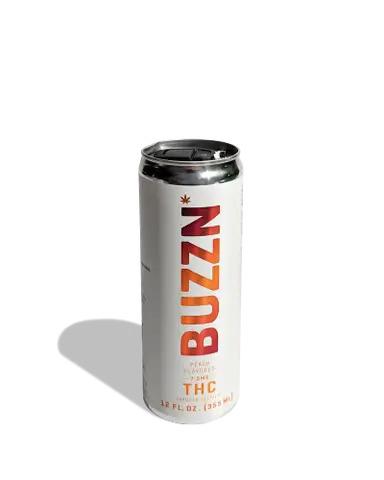Notifications

7 minutes, 33 seconds
-11 Views 0 Comments 0 Likes 0 Reviews

Cannabis, also known as marijuana, is a plant that has been used for thousands of years for medicinal, therapeutic, and recreational purposes. In recent decades, science and public policy have reignited interest in cannabis as a natural alternative to traditional pharmaceuticals. With legalization expanding across the globe, cannabis is becoming more mainstream—not just as a recreational substance, but as a legitimate tool in modern wellness and healthcare.
At Lume, we believe in exploring clean, plant-based solutions to wellness, and cannabis aligns closely with our mission to help people take better care of their bodies in safe and natural ways.
Cannabis is a flowering plant from the Cannabaceae family, primarily known for its psychoactive and medicinal compounds. It contains more than 100 cannabinoids, the most well-known being THC (tetrahydrocannabinol) and CBD (cannabidiol). THC is responsible for the psychoactive effects or "high" associated with cannabis, while CBD is non-intoxicating and known for its therapeutic benefits.
THC: Offers pain relief, appetite stimulation, and relaxation but causes a euphoric high.
CBD: Reduces inflammation, anxiety, and seizures without psychoactive effects.
CBN, CBG, and CBC: Emerging cannabinoids with promising health effects currently under research.
Modern cannabis consumption has evolved far beyond smoking. Here are the most common product forms available today:
The most traditional form, used for smoking or vaporizing. Available in sativa, indica, or hybrid strains.
Cannabis-infused food and drinks like gummies, chocolates, teas, and beverages. Effects can take longer to set in but last longer.
Liquid extracts placed under the tongue for fast absorption. Ideal for precise dosing and medical use.
Creams, balms, and lotions infused with cannabis used to relieve localized pain and inflammation without any psychoactive effects.
Highly potent forms like wax, shatter, or oils used for dabbing or vaporizing.
Cannabis is no longer just a recreational tool—it’s at the forefront of a new wave of natural health and wellness. Here’s how:
Cannabis is widely used for chronic pain relief. It’s particularly effective for conditions like arthritis, fibromyalgia, and neuropathic pain, offering a less addictive alternative to opioids.
CBD-dominant strains can reduce anxiety, depression, and PTSD symptoms without intoxication. For some, low-dose THC can also provide mood stabilization.
Indica strains and certain cannabinoids like CBN promote better sleep by helping users fall asleep faster and stay asleep longer.
Cannabis compounds help reduce systemic inflammation, which plays a role in conditions like IBS, Crohn's disease, and autoimmune disorders.
Cannabis can help cancer patients manage symptoms like nausea, appetite loss, and pain during chemotherapy.
Cannabis is now being integrated into daily routines and wellness lifestyles. People use it for yoga, meditation, stress relief, and even post-workout recovery. Luxury wellness brands, including platforms like Lume, are acknowledging the plant's potential and incorporating cannabis-related education and support into their broader self-care offerings.
Cannabis legality varies widely depending on your country or state. In legalized regions, consumers can purchase lab-tested, regulated products from licensed dispensaries. However, responsible use is crucial. Always start with low doses, understand the product you’re using, and follow local laws.
Start Low and Go Slow: Begin with small doses to gauge your reaction.
Know Your Strains: Sativa energizes, Indica relaxes, Hybrids offer a blend.
Understand Delivery Methods: Edibles take longer but last longer; smoking is fast but short-lived.
Store Properly: Keep products out of reach of children and pets.
At Lume, we advocate for clean, transparent, and body-safe products. Just as we formulate aluminum-free deodorants and full-body hygiene solutions, we support the responsible use of cannabis as part of a cleaner, more natural wellness lifestyle. Both industries share values of ingredient transparency, consumer education, and body autonomy.
Cannabis has a low potential for physical dependence compared to alcohol or opioids. However, psychological dependency can occur in some users. Responsible, moderate use and understanding your body’s limits is essential.
Yes. CBD products, and even some low-THC cannabis strains, can provide therapeutic effects without intoxication. Topicals and hemp-based extracts are excellent for wellness without psychoactivity.
No. Cannabis laws vary by region. Some areas allow only medical cannabis, others permit full recreational use, and some still prohibit it. Always check local regulations before purchasing or consuming cannabis.
Cannabis can interact with some medications. It’s important to consult with a healthcare provider if you are on prescription drugs, especially blood thinners, sedatives, or antidepressants.
Conclusion
Cannabis is no longer a taboo topic—it’s a proven wellness tool embraced by health professionals, researchers, and everyday users alike. From stress management to chronic pain relief, cannabis offers a powerful, natural path toward better living when used responsibly. As the wellness industry continues to evolve, cannabis will undoubtedly remain a key player in holistic health.
At Lume, we’re proud to be part of the clean living movement and support plant-based wellness that empowers individuals to take control of their health—naturally.

